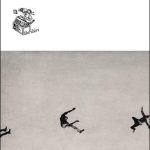BOOKS – Italian journalist P.G. Battista’s pamphlet a source of hope
 “I was born in 1955 and often wondered why, both in the world of culture and among ordinary people, by the end of 1930s no one noticed or didn’t want to notice, that that the world, particularly the Jewish world, was descending into a catastrophic spiral that culminated in the Shoah. Was it so difficult to decipher? Was there indifference, a desire for a quiet life, disbelief in the face of that slow discrimination, which would later become persecution and finally apocalypse? Were the conceptual tools to understand where we were going missing? Was it fear, stupidity, and pettiness? Today, I believe I have come to understand why.” Italian writer and journalist Pierluigi Battista developed this awareness in light of the wave of antisemitism that followed October 7. For months, while writing for the newspaper Il Foglio and The Huffington Post Italia, Battista has noted the episodes of hatred against Jews occurring around the world, particularly in the West. The list has proven to be long, too long, he denounced in his last pamphlet La nuova caccia all’ebreo (The new hunt for Jews) published by Liberilibri. The author, presented his book at the Jewish Museum in Rome with Rabbi Riccardo Di Segni, and the journalist Paolo Mieli in a meeting introduced by the president of the Jewish Community of Rome Victor Fadlun.
“I was born in 1955 and often wondered why, both in the world of culture and among ordinary people, by the end of 1930s no one noticed or didn’t want to notice, that that the world, particularly the Jewish world, was descending into a catastrophic spiral that culminated in the Shoah. Was it so difficult to decipher? Was there indifference, a desire for a quiet life, disbelief in the face of that slow discrimination, which would later become persecution and finally apocalypse? Were the conceptual tools to understand where we were going missing? Was it fear, stupidity, and pettiness? Today, I believe I have come to understand why.” Italian writer and journalist Pierluigi Battista developed this awareness in light of the wave of antisemitism that followed October 7. For months, while writing for the newspaper Il Foglio and The Huffington Post Italia, Battista has noted the episodes of hatred against Jews occurring around the world, particularly in the West. The list has proven to be long, too long, he denounced in his last pamphlet La nuova caccia all’ebreo (The new hunt for Jews) published by Liberilibri. The author, presented his book at the Jewish Museum in Rome with Rabbi Riccardo Di Segni, and the journalist Paolo Mieli in a meeting introduced by the president of the Jewish Community of Rome Victor Fadlun.
“We thought we had built the necessary barriers to stem prejudice and antisemitic violence,” said Battista. “We thought we had learned the tragic lesson of the Shoah gave us. ‘Never again’ it had been said. Never again should people be targeted for their cultural, religious, or ethnic background after the Shoah. However, for example, during a pro-Palestinian parade, there were people shouting ‘Zionists out of Rome’ right in front of the ghetto where the Nazis rounded up Roman Jews.” According to the journalist, not only “a taboo has been broken fall, but the unspeakable is voiced again without shame,” but above all, a silent void has formed around the Jewish world and Israel, in particular in cultural circles and the progressive left. With the war in Gaza, there has been a return to blaming Israel and all Jews, erasing the responsibilities of Hamas.” “If Jews do not act like Jews and do not accept their ontological condition of victims, then the judgement on them fades and blurs until it completely disappears and transforms into open hostility. People don’t like it when Jews defend themselves. It no longer makes us cry: it simply outrages us.”
From Italy to Sweden, from the United States of America to Dagestan (where at the end of October 2023, the hunt for Jews materialized in an attempted pogrom), Battista reminds us of the international nature of antisemitism. He points his finger at the ignorance of those, just like pro-Palestine protesters, who imagine a non-existent Hamas: not a terrorist and killer movement ready to sacrifice its own people, but a fetish of resistance. He admits that as a younger man he too shared this prejudice, when Palestinian terrorism had the face of Black September. “I was foolish, and it pains me to see the same idiotic obsession I had on the faces of those who today continued not to understand that Israel’s battle is for its survival. At the time, if someone would have called me antisemitic, I would have been mortally offended. But I did not know that stereotypes work at a deep level and that that accusation would not have been entirely unjustified.”
Through his research, Battista has, since then, changed his worldview, acknowledged his mistakes, and now finds himself on the other side of the river. The prejudice against Israel and the Jews is not, therefore, irreversible. This is the only hope in an otherwise very bitter pamphlet.
Translated by Chiara Tona, student at the Advanced School for Interpreters and Translators of the University of Trieste, trainee in the newsroom of the Union of the Italian Jewish Communities – Pagine Ebraiche.
